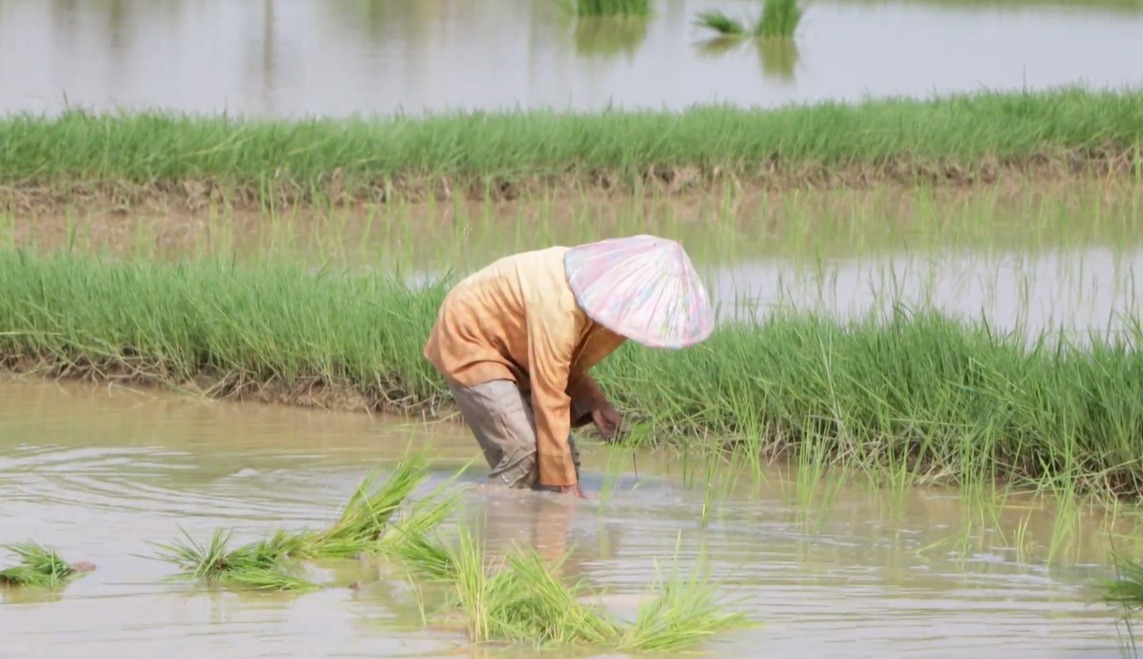
Food Prices Soar Due to the Climate Crisis
Entering early 2026, several staple food items in Indonesia have seen price increases compared to the previous year. This isn’t just a matter of distribut... Read more.
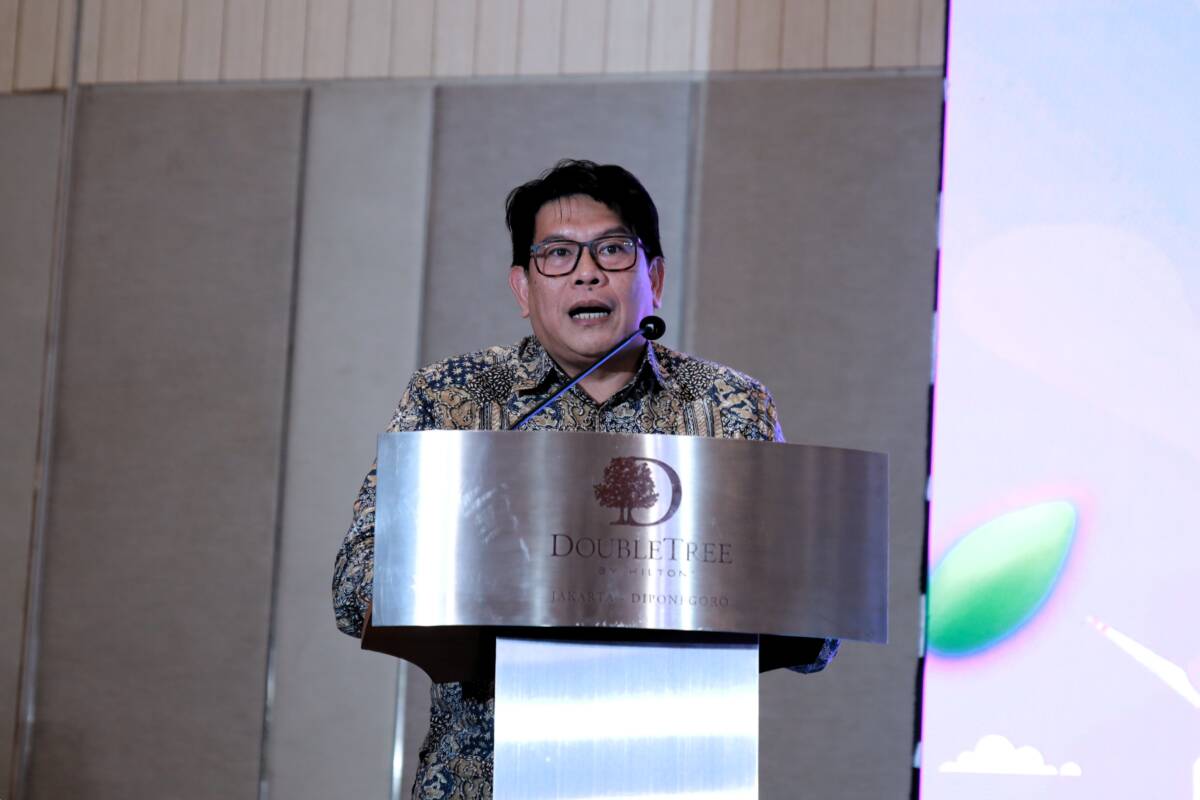
IESR’s Response to 2025 Energy Performance Achievements: Stagnant Energy Transition, Threatened Energy Security
This statement is attributed to Fabby Tumiwa, Chief Executive Officer of the Institute for Essential Services Reform (IESR). In general, the performance of the ... Read more.
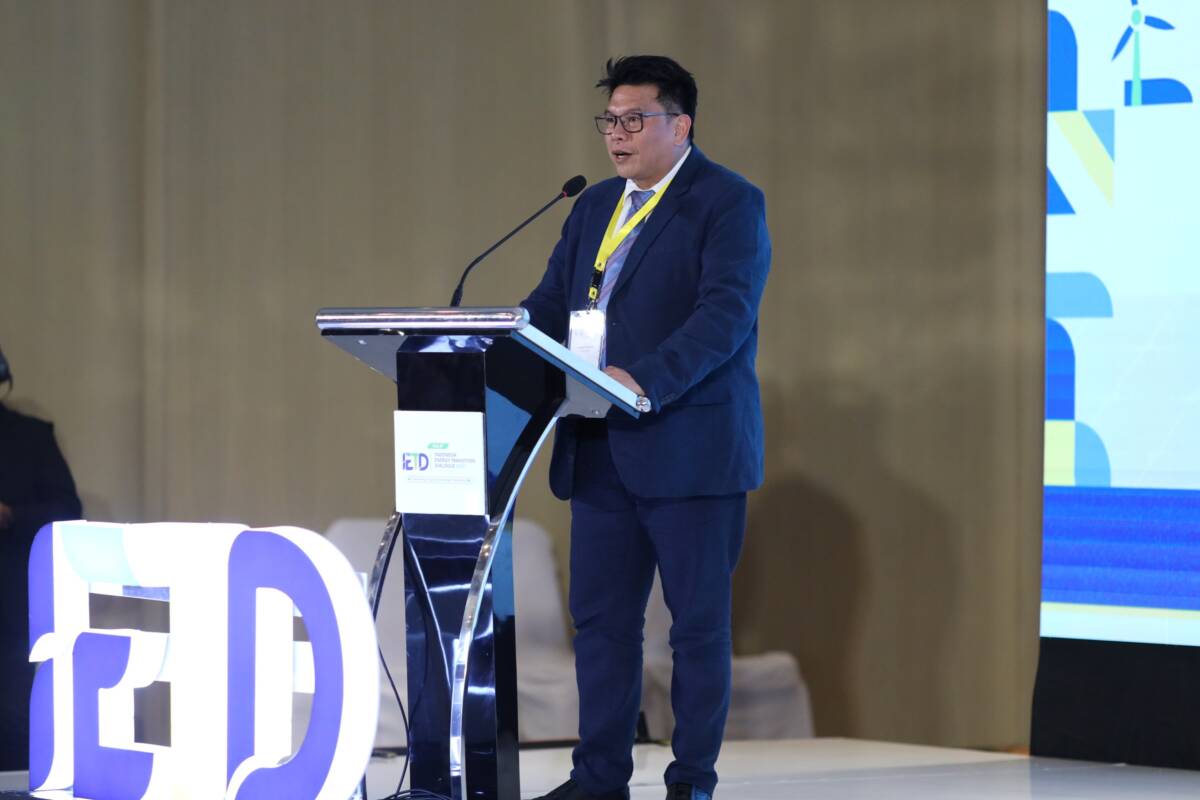
Economic Benefits of Up to Rp544 Trillion per Year Vanish as EV Incentives End
Jakarta, December 19, 2025 – Coordinating Minister for Economic Affairs Airlangga Hartarto stated that electric car incentives will not be extended in 202... Read more.
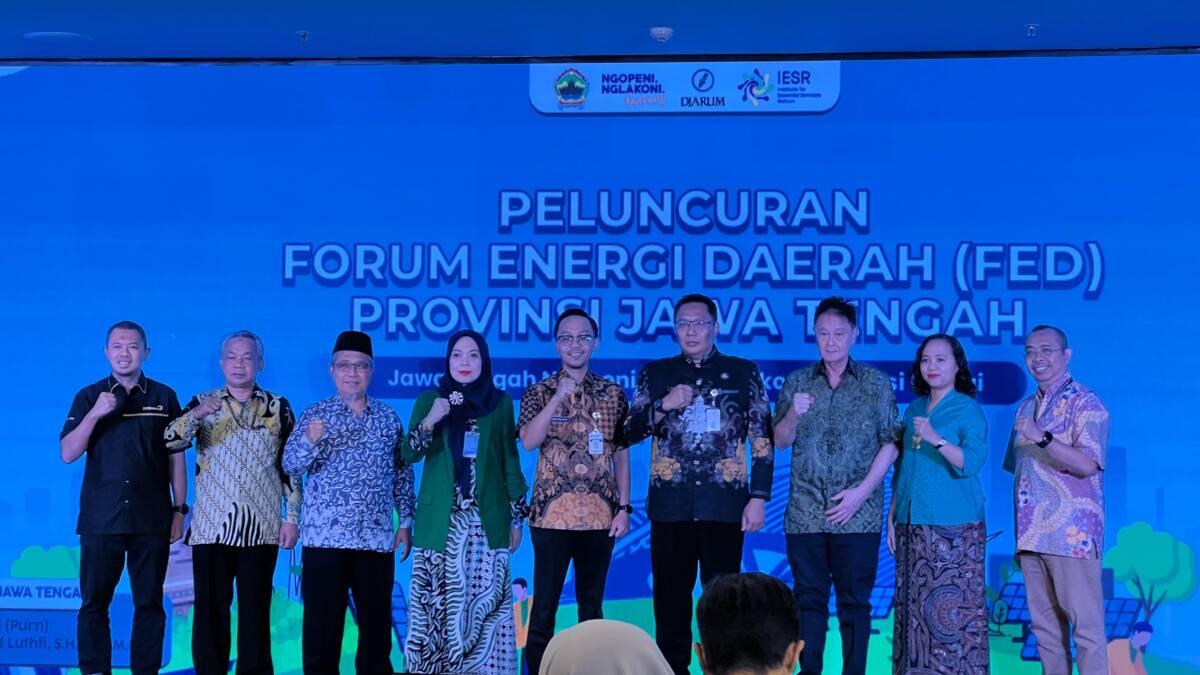
Strengthening Collaboration to Accelerate Renewable Energy Development in Central Java
Kudus, 4 December 2025 — Central Java holds significant renewable energy potential, reaching approximately 197.96 GWp according to a study by the Institute fo... Read more.
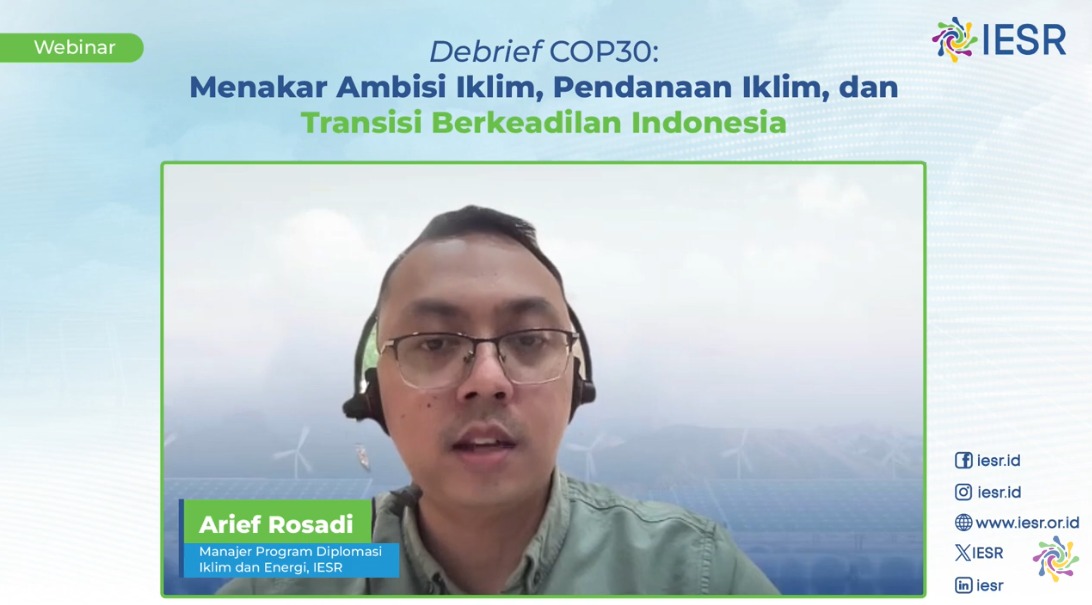
IESR: Indonesia Needs to Strengthen Climate Action Post-COP30
Jakarta, 8 December 2025 – The 30th UN Climate Change Conference (Conference of Parties, COP30) in Belém, Brazil, officially concluded on Saturday (22/11... Read more.
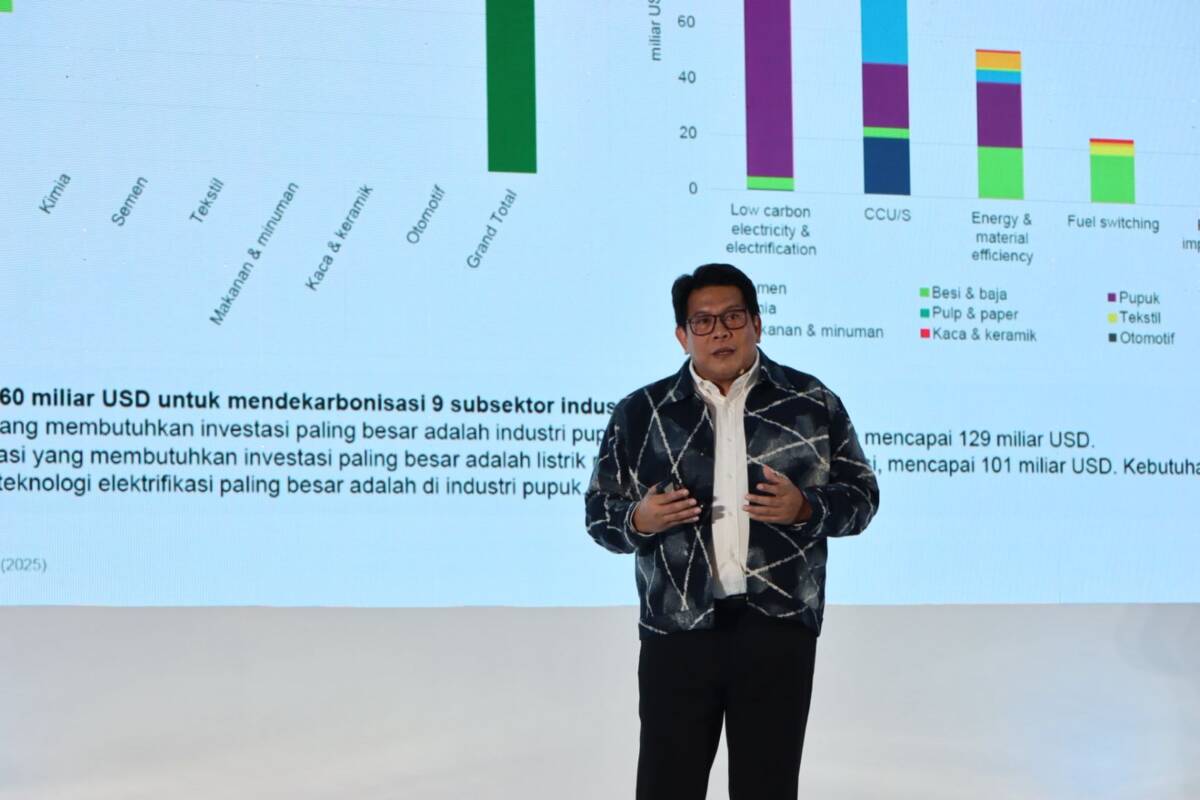
Indonesia Needs to Boost Industrial Decarbonization for 8 Percent Economic Growth
Jakarta, December 2, 2025 – President Prabowo Subianto aims for Indonesia’s economic growth to accelerate to 8 percent in the next few years. Responding... Read more.

Low-Emission Mobility Requires Policies That Favor Public Transportation
Jakarta, December 1, 2025 – “Accelerating the decarbonization of the transportation sector must be a priority for the Indonesian government to achie... Read more.
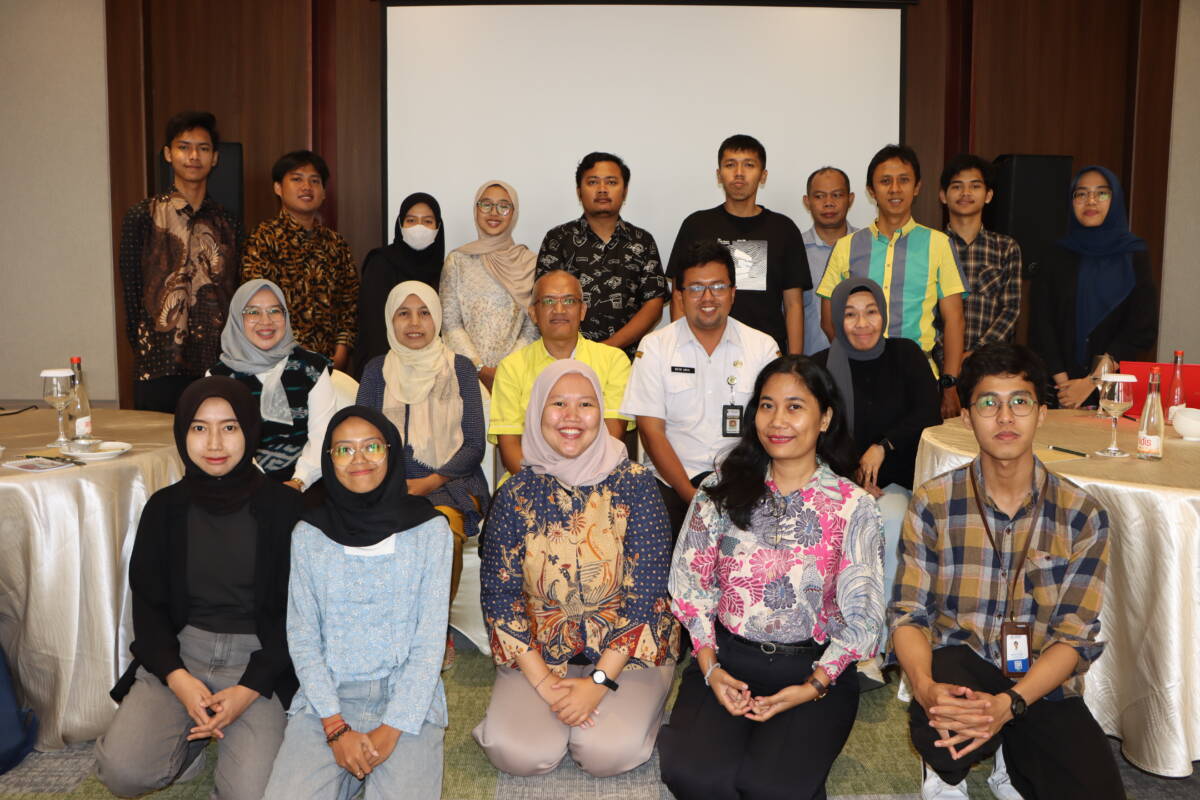
Utilization of Renewable Energy Becomes a Development Priority in Central Java
Semarang, November 28, 2025 – Central Java is at a critical juncture in its journey toward future energy. Amidst the constantly growing need for electricity, ... Read more.
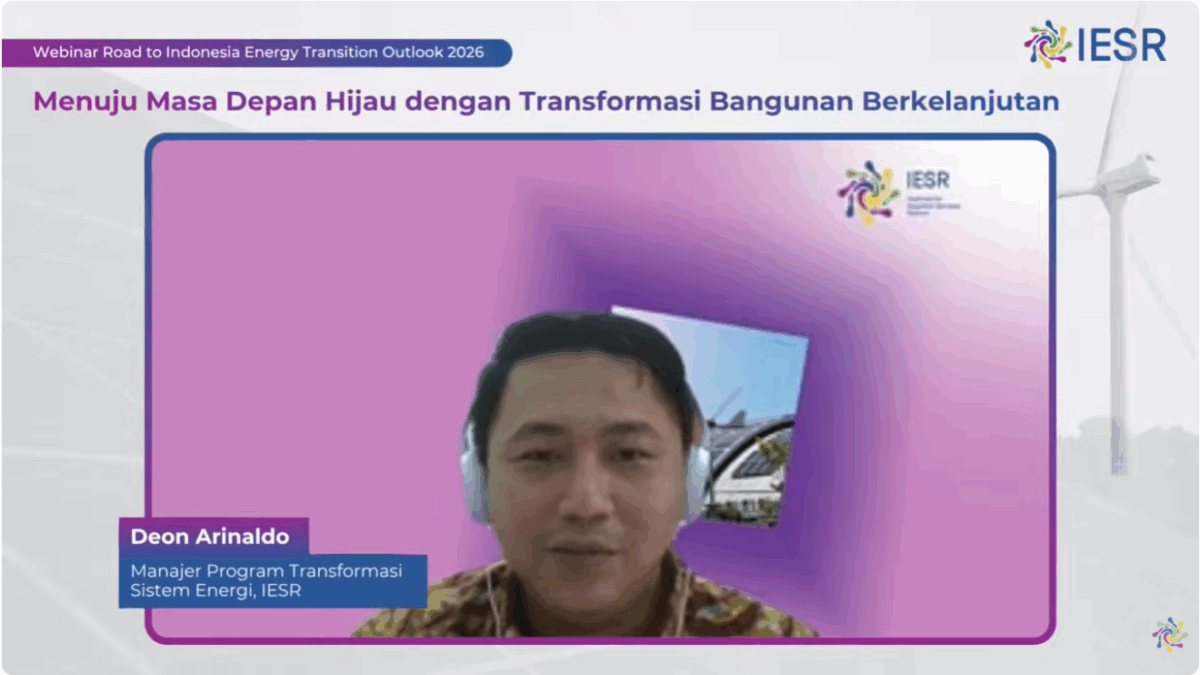
Progress on Emission Reduction in the Green Building Sector in Indonesia
Jakarta, November 17, 2025 – Various sectors in Indonesia continue to move towards a low-emission future, and one area currently receiving significant att... Read more.
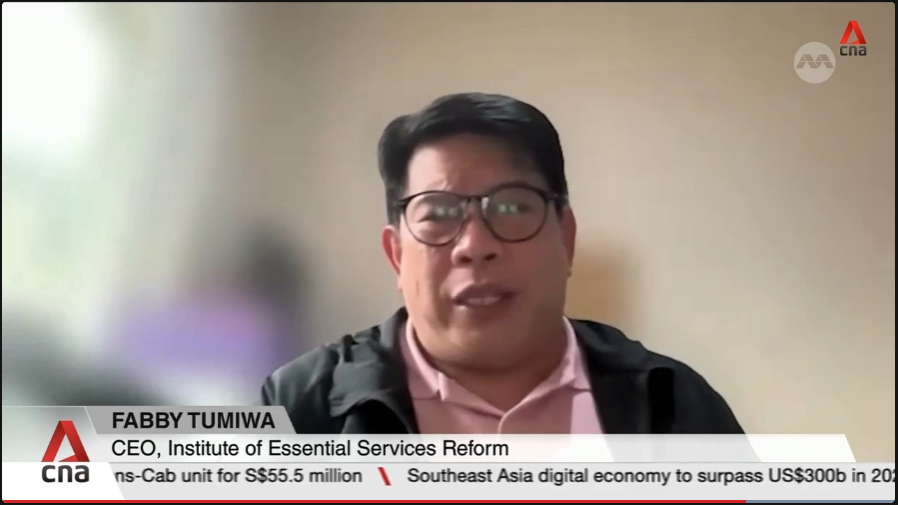
Development of Tolo 2 Wind Farm: The Importance of Synchronizing Power Plants and Transmission Networks
Jakarta, November 17, 2025 – Indonesia plans to start the construction of the Tolo 2 Wind Power Plant (PLTB) in South Sulawesi, with construction scheduled to... Read more.
